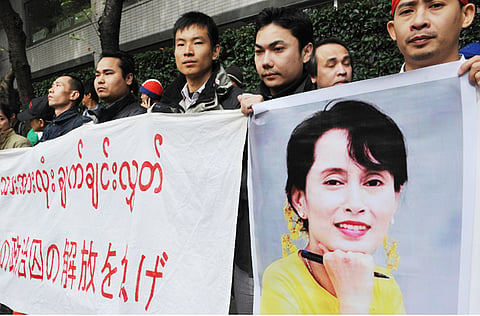Fact file on Myanmar elections
Some key facts about Myanmar's first election in two decades

Yangon: Myanmar held its first election in two decades on Sunday, a vote that has been criticised by Western nations and activists as undemocratic, with opposition leader Aung San Suu Kyi locked up.
Following are some of the key facts about the ballot:
More than 29 million voters are eligible to vote at about 40,000 ballot stations in the first election since 1990, when Suu Kyi's party won a landslide victory that was never recognised by the junta.
The balloting will decide a new parliament, which will in turn pick a president and two vice presidents through an electoral college.
In total 37 parties and more than 3,000 candidates - including 82 independents - will take part in the election for about 1,160 seats across a two-chamber national parliament as well as 14 regional legislatures.
Constituencies will be won by the highest polling candidate on a first-past-the-post basis.
One quarter of the seats in parliament are reserved for military appointees, whatever the outcome.
The election has been cancelled in some insurgency-plagued areas. Voting also is not being held in 54 constituencies where there is only one candidate.
Two pro-junta parties are fielding about two-thirds of the candidates and the opposition is absent in many areas.
Voting is not compulsory in Myanmar and some people are supporting a boycott, but state media have said that people who value democracy "must cast their votes without fail."
The regime is refusing to allow foreign election observers or international media into the country for the vote and has slapped tight restrictions on local journalists.
Voting began at 6am (2330 GMT Saturday) and will finish at 4pm or later if there are people already inside the polling station waiting to vote.
Candidates and their representatives will be allowed into the polling stations and to watch the counting.



